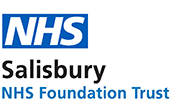Chemotherapy uses anti-cancer (cytotoxic) drugs to destroy cancer cells. Cytotoxic means toxic to cells. These drugs disrupt the way cancer cells grow and divide, but they also affect normal cells, which may cause side effects. Chemotherapy may be chosen as a course of treatment on its own, or alongside surgery and/or radiotherapy.
It’s important to discuss the benefits and side effects of chemotherapy with your cancer specialist. If you have a cancer that has spread, and you decide that you don’t want to have chemotherapy, your doctor can still prescribe medicines to help control symptoms.
Neoadjuvant chemotherapy:
Chemotherapy is often given before an operation to remove a liver cancer as it can shrink the tumour, making it easier to remove. This is sometimes called neoadjuvant chemotherapy.
Adjuvant chemotherapy:
Chemotherapy can sometimes be given after surgery to reduce the chances of the disease coming back. It works by destroying any cancer cells that might be left behind after the operation. This is called adjuvant chemotherapy.
Palliative chemotherapy:
Unfortunately, in some cases when the cancer cannot be cured or has spread to other parts of the body, treatment is then focused on shrinking the tumour/s and relieving symptoms rather than curing the cancer. This is called palliative chemotherapy.
For more information on chemotherapy for liver cancer, visit: Macmillan - Chemotherapy for Liver Cancer
For full information on the Oncology Department at Salisbury District Hospital, please view the Oncology Department page.
For information on the different medications used to treat different cancers, visit Macmillan Cancer Support’s website where you will be able to find information on the medication you have been prescribed via their ‘A to Z list of cancer drugs’.
Alternatively, Cancer Research UK also provide information on medication which you may be prescribed, you can also search via this link.


